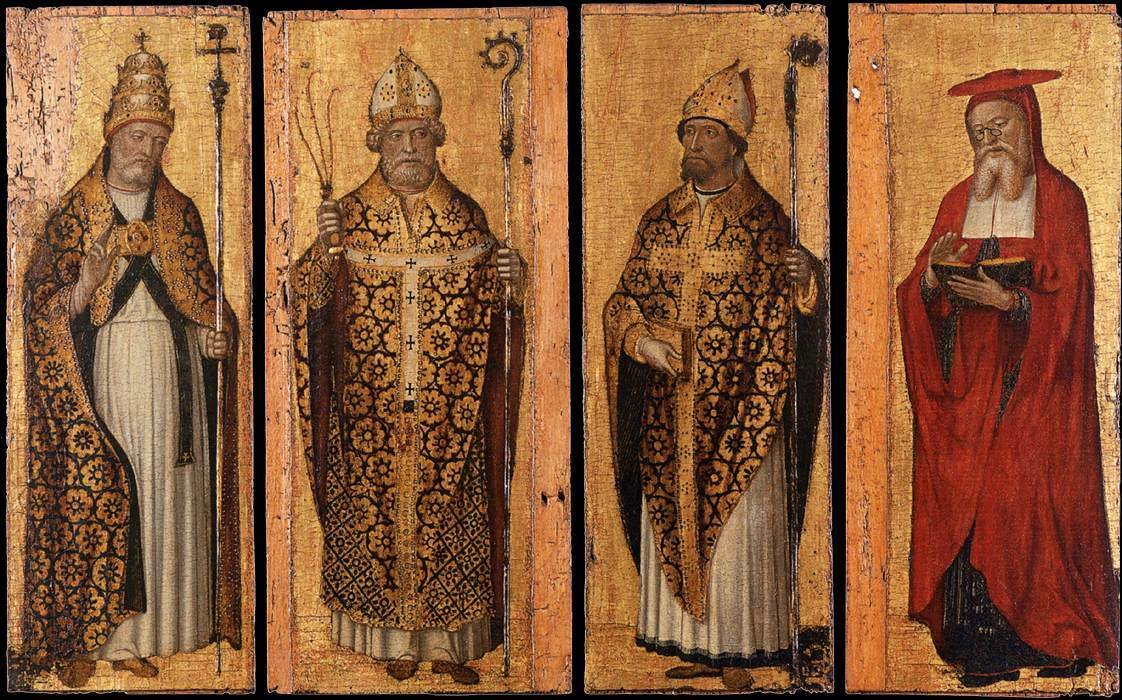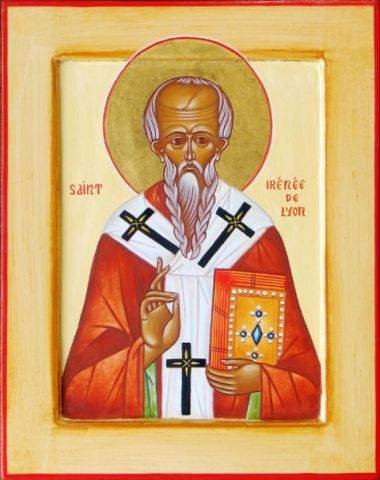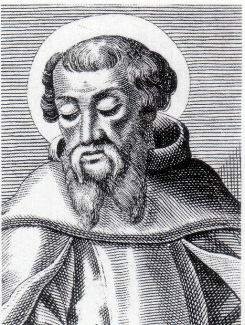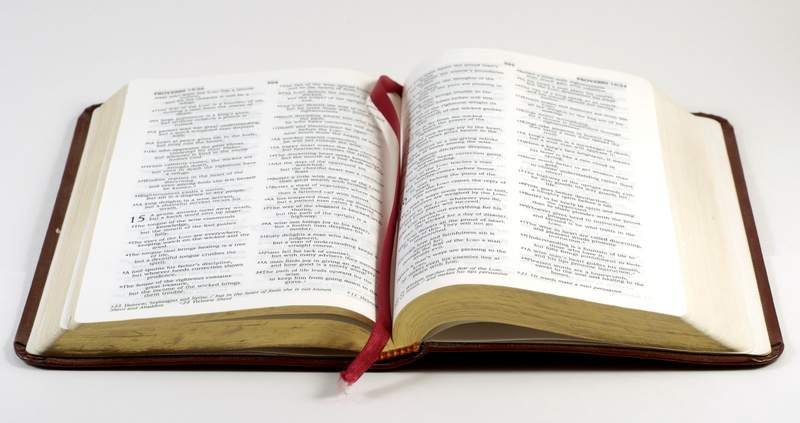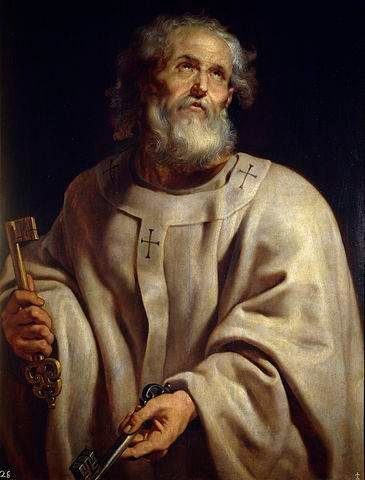
Peter Paul Rubens. St. Peter. c. 1611. Oil on canvas.
So I’m realizing why the “tomb of st. peter” is such a popular search term. It seems the issue of St. Peter’s presence and ministry in Rome is one of the major points of contention between Catholics and many Protestants (especially those of an anti-Catholic bent). This is somewhat surprising to me. Even as a Protestant, there was never any question in my mind that Peter ministered and died in Rome — perhaps because I’m also an historian. The historical evidence for Peter being in Rome is not just solid; it’s unanimous. Every historical record that speaks to Peter’s later life and death attests that he died in Rome a martyr under the emperor Nero, ca. A.D. 67. No record places the end of his life anywhere else.
The fact that so many people are searching on Peter in Rome tells me that people are hearing conflicting statements and wondering, searching for the truth. The fact that so many Protestants deny it so vehemently, and refute it so absurdly, tells me that they, however basically, realize the power in our claim. They recognize and in effect acknowledge what we have maintained for many centuries: that having the chief of Apostles as our foundation gives the Roman Catholic Church legitimacy and primacy.
Why else would it be so important to refute that St. Peter was here? He was but a man who died nearly 2,000 years ago. If, as Protestants charge, the Catholic Church left its apostolic foundations long ago and drifted over the centuries into corruption, why should it be so significant what those foundations were? Why deny a well-attested historical fact unless it carries some continuing authority? Do they not realize that in attacking the Roman Church’s foundations, they are undermining their own — since we are their Mother Church, too?
The primary reason for this opposition, I suspect, is that in a fundamentalist view, all religious truth must come from Scripture, sola scriptura — and it is not self-evident from Scripture that St. Peter was ever in Rome. This is also the reason why few Protestants seem to dispute that St. Paul was in Rome: because he tells us he was, repeatedly, in his scriptural epistles. Most more thoughtful Protestants realize that there is a difference between religious truth and historical truth, however intertwined the two may sometimes be; and historical sources are valid authorities for historical truth. These tend to be, incidentally, the Protestants least inclined toward anti-Catholicism.
First Epistle of St. Peter
But the Bible can be an historical source, too. And there is actually a significant testimony in the Bible to Peter’s presence in Rome. In the valediction of Peter’s first epistle, he wrote (1 Peter 5:13 ESV):
She who is at Babylon, who is likewise chosen, sends you greetings, and so does Mark, my son.
Here the Greek grammar is clear: ἀσπάζεται ὑμᾶς (sends greetings to y’all) ἡ ἐν βαβυλῶνι (she who is in/at Babylon) συνεκλεκτὴ (she elected/chosen together) καὶ Μᾶρκος (and also Mark) ὁ υἱός μου (my son). Peter, writing the letter, and therefore sending the greetings, is obviously with “she who is at Babylon,” and also with Mark, “[his] son.” She elected is the Church, always personified as a woman; and Peter is with the Church. But the Church where? The ancient city of Babylon had been in ruins for centuries. Peter must have been speaking in a cryptic metaphor. The Babylon of the Bible was the capital of a vast, powerful empire, and stood at the height of sin and excess. Where else could that be in Peter’s day but Rome?
You don’t have to take my word for it. From the study notes of the well-respected, evangelical ESV Study Bible (which continues to be my personal Bible of choice):
1 Pet. 5:13 She who is at Babylon, who is … chosen almost certainly refers to the church in Rome, not a literal woman (cf. “elect lady,” 2 John 1, 13). Although the Babylon of the OT was in ruins, the reference resonates with the OT, where “Babylon” represents a center of earthly power opposed to God (cf. Isaiah 13–14; Jeremiah 50–51; see also Revelation 17–18), and in Peter’s day that city would be Rome. The language of “Babylon” and “chosen” forms an inclusio (a literary envelope) with the first verse of the book: the OT background to “Babylon” reminds believers that though they are exiles, they are “elect exiles” (1 Pet. 1:1) who will receive the promised inheritance. Mark is the same John Mark who traveled with Paul and Barnabas on their first missionary journey (cf. Acts 12:25; 13:5, 13; 15:36–39). Though he left Paul and Barnabas, he was later restored to his former usefulness (Col. 4:10; 2 Tim. 4:11; Philem. 24). Peter would have known Mark from the earliest days, because the church met in his mother’s home (Acts 12:12). In addition, this verse shows a close relationship between Peter and Mark (my son) and is one indication of the validity of the early church tradition that Mark wrote his Gospel at Peter’s direction.
Writing under the emperor Nero, Peter would wisely have used discretion in revealing his whereabouts in writing, lest his letter be intercepted by Roman authorities. The symbolism that is transparent to Christians today would not have been so explicit to those not so steeped in the Old Testament or ancient Mesopotamian history.
St. Clement of Rome
Among the earliest surviving testimony outside the Bible is the first letter of Clement (1 Clement), which is usually dated to around 95 or 96 A.D. Clement of Rome, as evident from the letter, was a high official of the Church in Rome, writing in exhortation to the Church at Corinth to settle a division between the established elders and an upstart faction. The Roman Catholic Church today holds St. Clement to have been the third bishop of Rome (i.e. pope); early patristic writers varied in their listings, placing Clement anywhere from second to fourth. His letter is a clear early example of the bishop of Rome exerting authority over other churches.
Regarding St. Peter, St. Clement did not speak to the specifics of Peter’s fate, but wrote (1 Clement 5–6, trans. Kirsopp Lake, in The Apostolic Fathers, vol. I, Loeb Classical Library, London and New York: William Heinemann, 1919):
But, to cease from the examples of old time, let us come to those who contended in the days nearest to us; let us take the noble examples of our own generation. Through jealousy and envy the greatest and most righteous pillars of the Church were persecuted and contended unto death. Let us set before our eyes the good apostles: Peter, who because of unrighteous jealousy suffered not one or two but many trials, and having thus given his testimony (μαρτυρήσας) went to the glorious place which was his due. Through jealousy and strife Paul showed the way to the prize of endurance; seven times he was in bonds, he was exiled, he was stoned, he was a herald both in the East and in the West, he gained the noble fame of his faith, he taught righteousness to all the world, and when he had reached the limits of the West he gave his testimony (μαρτυρήσας) before the rulers, and thus passed from the world and was taken up into the Holy Place,―the greatest example of endurance. To these men with their holy lives was gathered a great multitude of the chosen, who were the victims of jealousy and offered among us (ἐν ἡμῖν) the fairest example in their endurance under many indignities and tortures.
Clement was the first writer to place Saints Peter and Paul as a pair, as they have always been in the Roman Church. He showed a clear and personal knowledge of the deaths of both Peter and Paul, and he assumed that his recipients also knew the stories. Most Christians accept that Paul was martyred in Rome; it is not a far stretch to assume from Clement’s pairing of the two Apostles that he also believed Peter to have died in Rome. In fact, his grammar is revealing: Peter and Paul offered their example—their martyrdom—“among us” (ἐν ἡμῖν)—that is, among the Romans. Clement was consistent throughout his letter in the use of the pronouns ὑμεῖς (you, i.e. Corinthians) and ἡμεῖς (we, us, i.e. Romans).
St. Ignatius of Antioch
St. Ignatius of Antioch, in his Epistle to the Romans, dated between 98 and 117, written en route to his martyrdom at Rome, referenced the Saints Peter and Paul (Epistle to the Romans IV):
I do not enjoin you in the manner of Peter and Paul. They were Apostles; I am a condemned man. They were free; I, until this moment, am a slave.
Again he placed Peter and Paul as a pair, and implied that the Romans have had personal contact with the Apostles, who enjoined them with authority.
St. Irenaeus of Lugdunum (Lyon)
St. Irenaeus, writing ca. 180, is the earliest extant writer I’ve found that stated directly that Peter ministered in Rome (Against Heresies III.1.1):
For, after our Lord rose from the dead, [the apostles] were invested with power from on high when the Holy Spirit came down [upon them], were filled from all [His gifts], and had perfect knowledge: they departed to the ends of the earth, preaching the glad tidings of the good things [sent] from God to us, and proclaiming the peace of heaven to men, who indeed do all equally and individually possess the Gospel of God. Matthew also issued a written Gospel among the Hebrews in their own dialect, while Peter and Paul were preaching at Rome, and laying the foundations of the Church. After their departure, Mark, the disciple and interpreter of Peter, did also hand down to us in writing what had been preached by Peter.
And again (Against Heresies, III.3.1-2):
It is within the power of all, therefore, in every Church, who may wish to see the truth, to contemplate clearly the tradition of the apostles manifested throughout the whole world; and we are in a position to reckon up those who were by the apostles instituted bishops in the Churches, and [to demonstrate] the succession of these men to our own times; . . . [We refute the heretics] by indicating that tradition derived from the apostles, of the very great, the very ancient, and universally known Church founded and organized at Rome by the two most glorious apostles, Peter and Paul; as also [by pointing out] the faith preached to men, which comes down to our time by means of the successions of the bishops. For it is a matter of necessity that every Church should agree with this Church, on account of its preeminent authority, that is, the faithful everywhere, inasmuch as the tradition has been preserved continuously by those [faithful men] who exist everywhere.
Here we have, clearly stated, not only the statement that Saints Peter and Paul built the Church at Rome—not that they were the first Christian missionaries there, but that by their apostolic ministry they laid its foundations—but also, Irenaeus affirmed the doctrines of Apostolic succession and Petrine primacy, unequivocally and authoritatively, at a date earlier than many Protestants would like to recognize. What is more, St. Irenaeus was not a partisan of the Church at Rome, but the Greek-born bishop of Lugdunum (today the city of Lyon in France). In the face of the growing threat of Gnosticism, the unity of the Church and the authority of Rome were more important than ever.
Clement of Alexandria
Clement of Alexandria, who wrote between ca. 190 and 215, made several references to Peter’s ministry in Rome, especially as it pertained to the ministry of St. Mark, founder of the Church at Alexandria. Some of these references survive only in fragments. The first, from Clement’s Commentary on the First Epistle of Peter, which survives only in the Latin translation of Cassiodorus:
Mark, the follower of Peter, while Peter publicly preached the Gospel at Rome before some of Caesar’s equites, and adduced many testimonies to Christ, in order that thereby they might be able to commit to memory what was spoken, of what was spoken by Peter, wrote entirely what is called the Gospel according to Mark.
The Church historian Eusebius of Caesarea, writing in the 290s, cited Clement’s lost Hypotyposes, as well as the testimony of Papias of Hierapolis, also otherwise lost, further attesting that Mark wrote his Gospel from the teachings of Peter at Rome (Church History II.15.2).
Tertullian
Tertullian, writing probably ca. 180-200, attested to Peter’s and Paul’s ministry and martyrdom in Rome in a passage from De praescriptionem haereticorum (Prescription against Heretics 36). Like Irenaeus, he appealed to the apostolic foundations of the orthodox churches:
Come now, you who would indulge a better curiosity, if you would apply it to the business of your salvation, run over the Apostolic churches, in which the very thrones of the Apostles are still pre-eminent in their places, in which their own authentic writings are read, uttering the voice and representing the face of each of them severally. . . . Since, moreover, you are close upon Italy, you have Rome, from which there comes even into our own hands the very authority [of Apostles themselves]. How happy is its church, on which Apostles poured forth all their doctrine along with their blood! Where Peter endures a passion like his Lord’s! Where Paul wins his crown in a death like John’s where the Apostle John was first plunged, unhurt, into boiling oil, and thence remitted to his island-exile!
Eusebius of Caesarea
Eusebius, compiling his Church History in the 290s, firmly stated the well-established tradition of Peter’s martyrdom in Rome (Church History II.25.5):
Thus publicly announcing himself as the first among God’s chief enemies, [Nero] was led on to the slaughter of the apostles. It is, therefore, recorded that Paul was beheaded in Rome itself, and that Peter likewise was crucified under Nero. This account of Peter and Paul is substantiated by the fact that their names are preserved in the cemeteries of that place even to the present day.
Eusebius cited as testimony earlier writers, and thus preserved a number of valuable fragments of works no longer extant. Among them is the previously discussed quotation which attests to the presence of Peter’s grave monument on Vatican Hill in ca. 210 (II.25.6–7):
It is confirmed likewise by Gaius, a member of the Church, who arose under Zephyrinus, bishop of Rome. He, in a published disputation with Proclus, the leader of the Phrygian heresy, speaks as follows concerning the places where the sacred corpses of the aforesaid apostles are laid: ‘But I can show the trophies of the Apostles. For if you will go to the Vatican or to the Ostian way, you will find the trophies of those who laid the foundations of this church.’
Finally, Eusebius preserved a document from Dionysius of Corinth, Bishop of Corinth in 171, attesting that both Peter and Paul had ministered in Corinth before going to Rome, and that they had died in Rome at the same time (i.e. under the same persecution) (II.25.8):
And that they both suffered martyrdom at the same time is stated by Dionysius, bishop of Corinth, in his epistle to the Romans, in the following words: ‘You have thus by such an admonition bound together the planting of Peter and of Paul at Rome and Corinth. For both of them planted and likewise taught us in our Corinth. And they taught together in like manner in Italy, and suffered martyrdom at the same time.’ I have quoted these things in order that the truth of the history might be still more confirmed.
This carries the documentary record of the ministry and martyrdom of St. Peter in Rome to the end of the third century. His presence there is suggested even by the Apostle himself in 1 Peter. His martyrdom there is attested to arguably as early as 95 or 96 by St. Clement, within thirty years of Peter’s death. It certainly is strongly attested by St. Irenaeus in ca. 180, after only little more than a century. Voices from all around the Mediterranean world affirm Peter’s residence in Rome, as well as Rome’s primacy.
No other writer or record places the end of Peter’s life anywhere but Rome. The majority of the earliest testimonies to the Early Church attest to it, and for nearly 1500 years, Peter’s apostolic ministry in Rome was universally accepted and unquestioned throughout the Church. As the Catholic Encyclopedia announced confidently, “St. Peter’s residence and death in Rome are established beyond contention as historical facts.”
